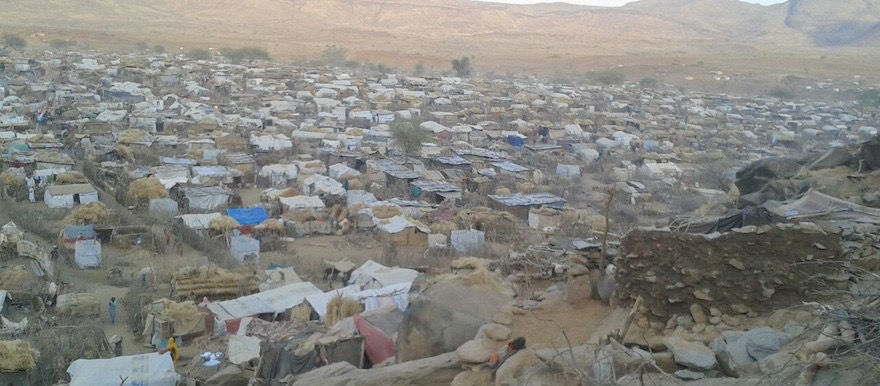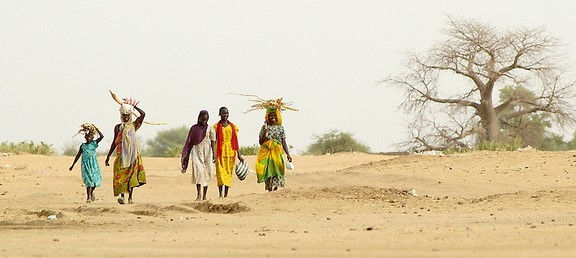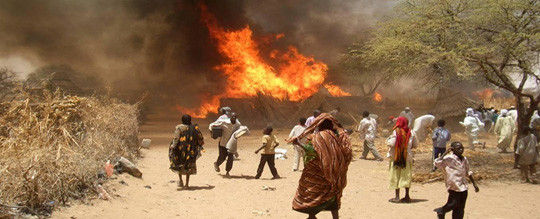I will be writing at length soon analyzing the various implications of this callous, finally barbarous Security Council decision to reduce UNAMID drastically (see below); my focus will be on the greatly increased risks to civilians in Darfur that will follow from this decision.
The conversion of this “hybrid” UN/African Union mission from “peacekeeping” to “peace-building” mission is little more than a scandalous fig-leaf for eviscerating what has been at various times the largest and most expensive peacekeeping mission in UN history. It will now take its place in that history as the most appalling failure, reflecting a willingness to abandon millions of Darfuris displaced, at risk, and often in desperate need of humanitarian relief that will not longer be possible in a great many areas because of the insecurity a massive UNAMID reduction will create. Failure though it is, UNAMID provided at least a modicum of security in some areas at some times—no longer.
The United Nations Security Council is expected to make major changes to the mandate of Darfur hybrid mission transforming it from a peacekeeping to a peace-building mission and to modify its force structure, Sudan Tribune has learnt. The 15-member body is expected to renew the mandate for the African Union-United Nations Mission in Darfur (UNAMID) as it will expire on 30 June. The Council will discuss the matter on 14 June and will grant the mandate extension for an additional year on 27 June.
Earlier this month Sudanese officials have already alluded that strategic review of the peacekeeping mission agreed recently responds largely to their demands to reduce the deployed troops and reflects the “positive developments” and improved situation in Darfur.
An international diplomat who spoke to Sudan Tribune under conditions of anonymity said that the Council would reduce nearly half of UNAMID personnel and would close the third of UNAMID team sites in the five states of the region.
“Almost 1/2 the size of the troop strength (44 percent) and 1/3 the police strength (30 percent),” he said adding approximately “1/3 of the team sites ( 11 out of 36) and withdrawing military from 7 other sites.” Also, the changes will affect the civilian staff as they would be deployed only in the capitals of Darfur five states.
UNAMID FAILURES IN PHOTOS


Failed to investigate the overwhelming evidence assembled by Amnesty International (September 2016) of Khartoum’s use of chemical weapons during the long Jebel Marra offensive of 2016

Failed to provide security for water tankers on the road from Kebkabiya to Sortony camp (near a UNAMID base in North Darfur), compelling the airlifting of displaced civilians from Jebel Marra to be airlifted to already overcrowded El Fasher camps

Failed to enforce the ban on offensive military flights by Khartoum in Darfur per UNSC Resolution 1591 (March 2005)

Failed to investigate all but a painfully few of the tens of thousands of rapes of girls and women in Darfur since January 2008 when UNAMID officially took on its civilian protection mandate in Darfur


Failed to investigate andy of the many deadly fires in IDP camps —some immensely destructive and the product of arson—regularly reported by Radio Dabanga

Frequently failed to protect civilians under attacks even when in plain view of UNAMID personnel | See especially:
“What We Learn of UNAMID from the September 2010 Tabarat (North Darfur) Massacre, 18 September 2011 | http://wp.me/p45rOG-Gi

UNAMID has done nothing to control the violence and predations of the Rapid Support Forces (RSF), Khartoum’s primary militia force in Darfur and reported on in detail by Human Rights Watch in September 2015 | https://www.hrw.org/report/2015/09/09/men-no-mercy/rapid-support-forces-attacks-against-civilians-darfur-sudan

Feckless and dishonest leaders of UNAMID have consistently misrepresented conditions on the ground in Darfur to ingratiate themselves to the Khartoum regime. In this photo, UNAMID head Ibrahim Gambari (Nigeria) is see chatting with indicted génocidaire Omar al-Bashir at the wedding of the daughter of notorious Janjaweed leader Musa Hilal (January 2012)
_______________________________________________________________________________________________________________________________________________
(c) 2017 SUDAN Research, Analysis, and Advocacy
